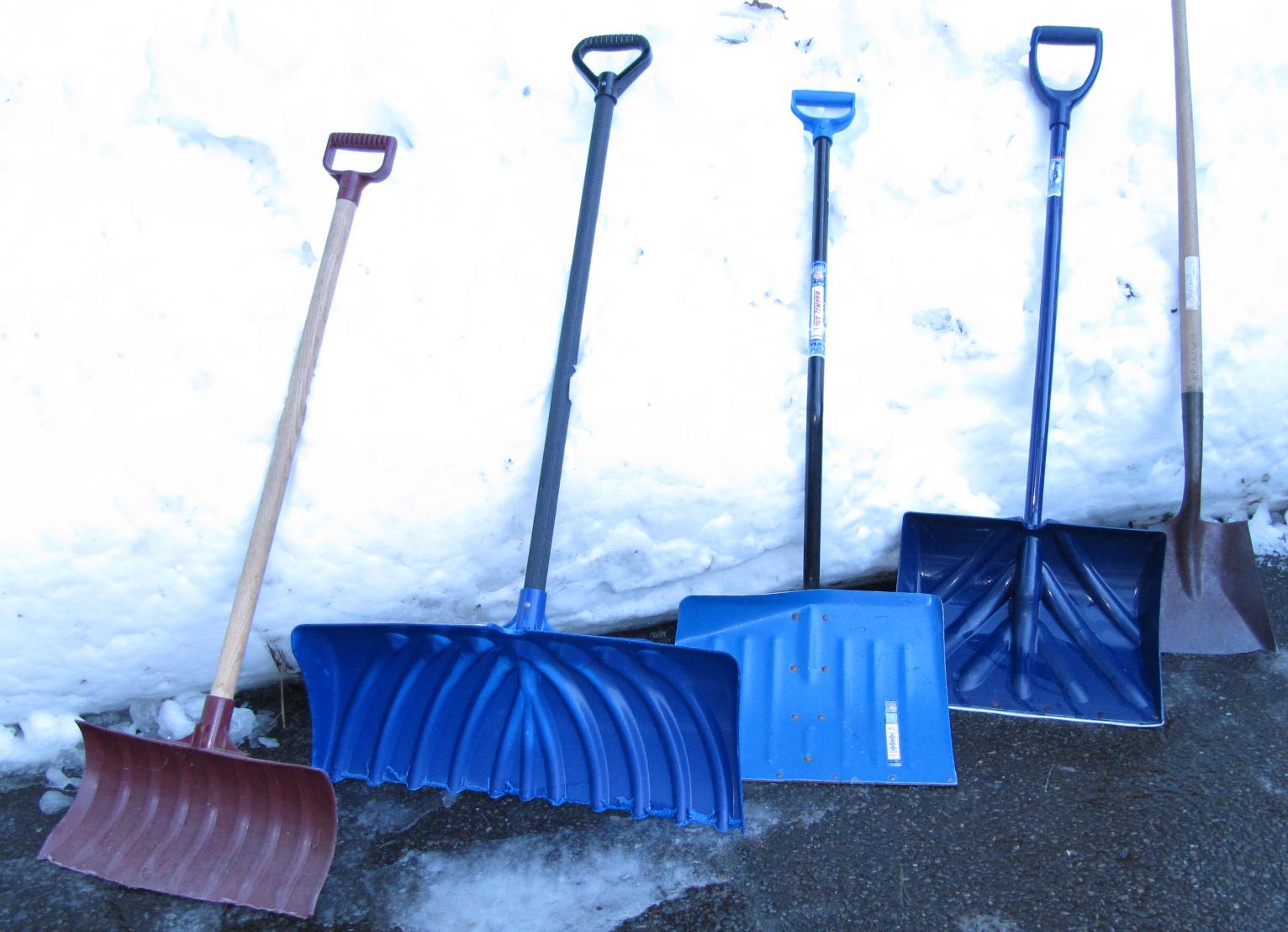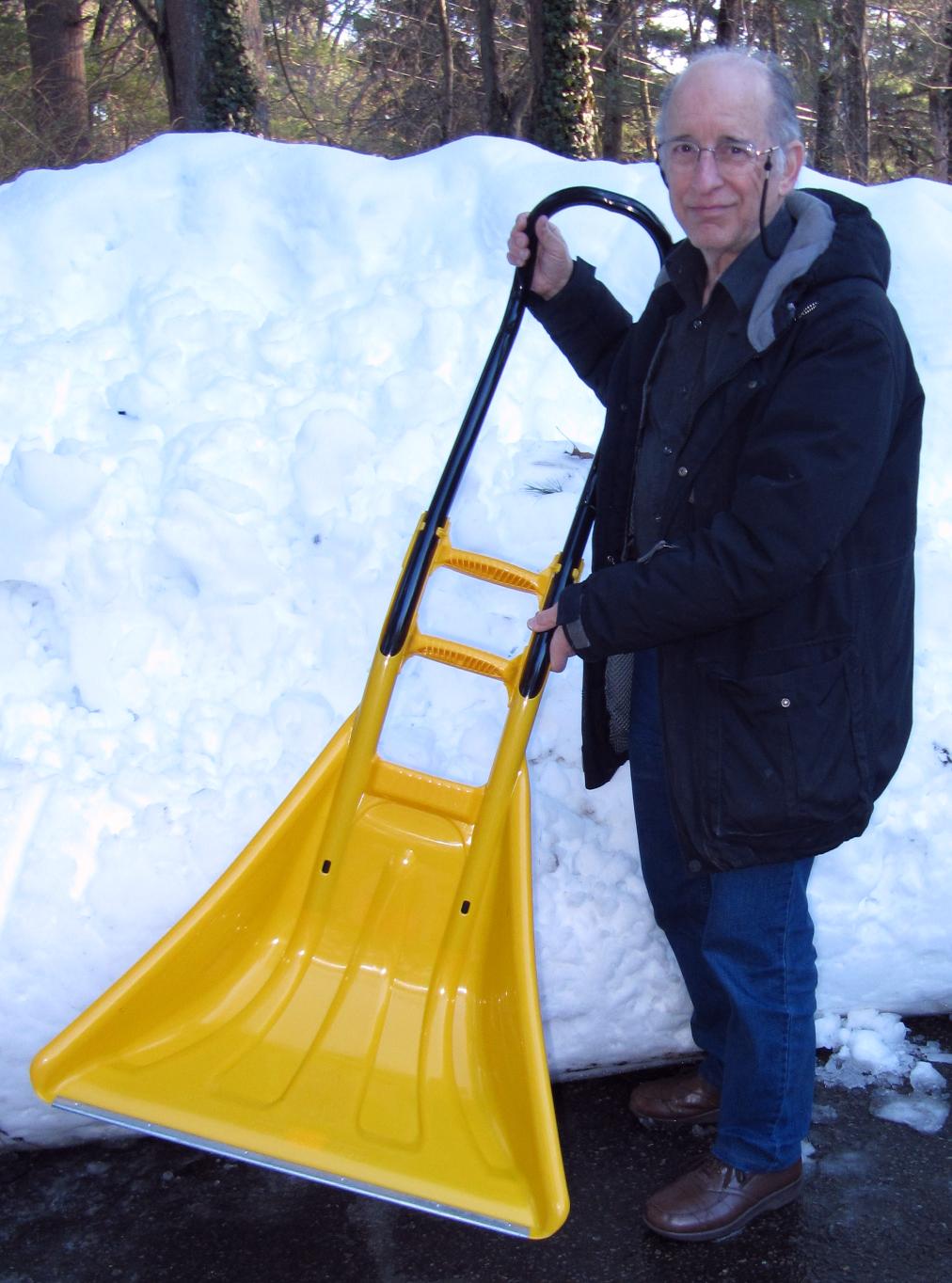
Residents of Elissa's apartment complex, responsible for removing the snow from their decks and walkways, didn't have the appropriate tools. Nobody had shovels specifically designed for moving snow, and ordinary spade shaped shovels aren't particularly well adapted to this. Residents picked up the snow using kitchen pots and pans. The next level up, the apartment complex, had no ability to clear the parking lots. They had no plows or snow blowers. As a result, cars couldn't get out of the lot, and everyone was confined to his own apartment. And one level higher, the city of Durham itself had no snow removal equipment, as it ordinarily doesn't get much snow. Thus their attitude towards it was very much like a sentiment once expressed, allegedly, by Washington D.C. Mayor Marion Barry: "The Lord giveth, and the Lord taketh away". The city of Durham waited for the temperature to rise, and for the snow to melt. But it didn't. The cold snap persisted, and so did the snow. It took about a week for the city to mobilize assorted equipment such as bulldozers and front loaders, much of it borrowed, to clear the streets and get the city moving again. In Boston, a snowfall of that magnitude would have been routine, and mostly cleared within a day. The episode brought to mind a much earlier incident I had heard about from my father. His company, Kay Manufacturing Corporation, was headquartered in Brooklyn, New York. But it owned seven other factories around the United States, and one of them was in the city of High Point, North Carolina. On one occasion, the company sent someone down from the Brooklyn office to assist with some project in High Point. A few days later, the Brooklyn office telephoned High Point, and strangely got no answer for quite a while. Eventually, though, the man from the Brooklyn office answered the phone. He reported that the High Point factory was empty - nobody was there but him (hence he had had trouble getting in). The Brooklyn man suggested that the factory must have had a day off. Perhaps it was some obscure Southern holiday that nobody had told him about. But the head office checked the calendar, and determined that the factory had been scheduled to open as usual. The problem had to be something else. Had the Brooklyn man noticed anything at all unusual? No, he reported, nothing special. Well, he eventually said, there had been a couple of inches of snow overnight. That was it. A couple of inches of snow? High Point, North Carolina was paralyzed. Nobody would drive. Except the man from Brooklyn, who hadn't given it a second thought. People from cities that don't get much snow are probably aware that we have special shovels, called "snow shovels", of course, which we use to deal with it. One of mine is shown in the picture at the beginning of this entry. But you'll note that I say, "one of mine". If you're from a warm climate, it might seem that one snow shovel is sufficient. Well, I might be able to get along with only one, but that would cause me to have to do a whole lot of unnecessary work. You see, all snow is not the same. There are light fluffy dry snows, but then there are heavy wet snows. And then there are different depths. A snowfall of 2 inches is dealt with differently than a snowfall of 2 feet. And the same snow can act differently at different temperatures. Note 1 Different shovels are best for different conditions. Sometimes snow need not be picked up, but can simply be pushed. An inch of snow can be pushed clear across the width of my driveway. while a foot of the same snow cannot be pushed that far, as it will pile up in front of the pusher and get too heavy. Here are some of the shovels I used to deal with snow:  Left to right: A small pusher, a wider pusher for lighter, shallower snow, a standard snow shovel (backup if the other one breaks), a better quality standard shovel, and an ordinary flat-bladed shovel, useful for breaking up hard-frozen snow. I could even use a few more. I might look for a wider pusher, for example. If you expand the above photo (click on it, and then click again, returning with your "Back" button) you'll see that the plastic scoop is very worn by being pushed over my driveway. It's probably lost an inch or two since it was new. My main shovel is one in from the right, which is also shown at the top of this entry. In the photo at the top, you can see its curved handle. Most modern snow shovels have handles that are either curved or that have bends in them, so the user is less likely to strain his back lifting the shovel (the curve/bend brings the lifting point up higher, so the user doesn't have to bend over as much).
It has a metal blade along its front edge to easily slide its high-capacity scoop under the snow. You can push it with your foot against the back of the scoop. It can then be picked up by either of the two handles, depending on the weight of the load. Or, once it's loaded with snow, you can tip it back, and slide it along the ground like a sled. If you then push it to a dumping area, it can slide up a mound of snow, without having to be lifted. If you then stop it abruptly, its load will keep going, sliding off the slippery surface. Do a Google search on "snow shovel" or "snow scoop", and you'll come up with all sorts of additional clever possibilities. Of course, I could just move to Florida. But living here is much more interesting.
  Note 1:
There's some dispute over the frequently repeated claim that Eskimo language have a large number of words for different types of snow. You might look at the Wikipedia entry on the subject, or just do a search on [Eskimo words for snow], which as of this writing produces over a million hits. [return to text]
 |

